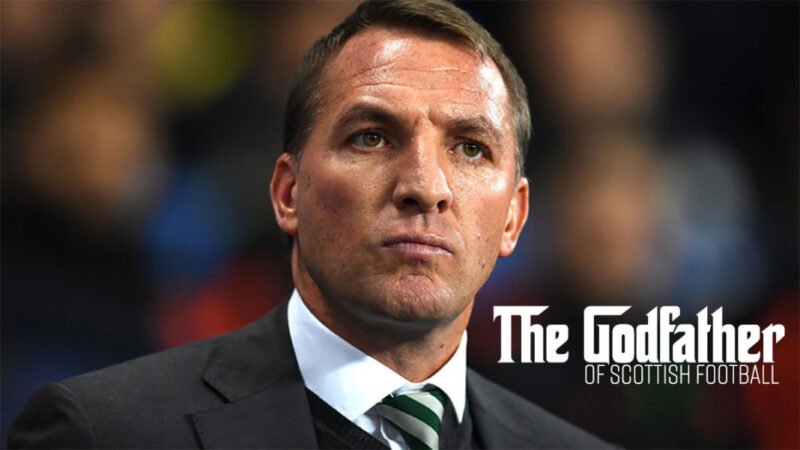The old adage goes, “familiarity breeds contempt”, but more and more often it seems that it is success that proves to be the more fertile breeder.
Consider film. One minute an Oscar nominated picture is lavished with praise, the next it is drowning in a wave of scorn. La La Land is the latest to receive such treatment. Music too feels this effect, with the Beatles carrying the dual monikers of both “the greatest band of all time”, and “the most overrated.”
Football is no exception. The most immediate example would be Sir Alex Ferguson during his Manchester United tenure. In the years since Ferguson’s retirement, it is easy to forget just how despised both he and his Club were. Particularly during the late 90s and early 2000’s. Folk’s ire was stoked by the way in which he furiously tapped his watch in dying embers of games, and by his regular bullying, belittling and condescension of referees. A litany of misdemeanors including, but not limited to; his “hairdryer treatment”, his refusal to speak to the BBC, his ruthlessness in jettisoning players, the melting of Kevin Keegan’s brain and his, at times, unbridled arrogance all lead to widespread annoyance for the man. All of these facets of his character are merely side dishes, a bitter amuse-bouche of unsightly quirks. The main dish that inspired such hatred was the fact he was a pure, unfiltered serial winner.
This predicament is one that may soon be faced by Brendan Rodgers. While his tenure at Parkhead may only be entering its second year, his undefeated domestic season, the accumulation of all three trophies and the ever-widening chasm between himself and the rest of Scottish football, are surely all harbingers of widespread animosity that is to come.
Rodgers in all fairness has done everything in his power to make himself as magnanimous as possible. He is consistently humble in victory, giving as much credit to his players and coaches as he can. This is in stark contrast to his Liverpool days where he seemed eager to bask in any and all adulation. He is generous with his time to the press, answering any and all questions they may have, no matter how banal they may appear. The criticism following him north of the border was his bizarre need to conjure weird, wonderful, and often embarrassing quotes. Thankfully this is a tendency that he has curbed.
It is also hard to argue that his presence has not elevated the entirety of the nation’s game. Rodgers has shown a real enthusiasm to develop players, to analyse what he has at his disposal and seek unique ways to enhance his player’s ability. It is a refreshing departure from today’s norm where the solution to every on-field problem seems to be to buy a costly replacement. This, however, is not to suggest that Rodgers has been reticent to spend. Spend he has, but unlike many of those who share his vocation, Celtic’s gaffer has spent wisely, with only backup goalkeeper Doris De Vries and, perhaps, right-back Christian Gamboa being suitable for the file marked “flop.” This has led to a trickle-down effect of talent. Last season Ajer was considered a contender for Kilmarnock’s player of the year – even though he only joined in January. This season Celtic have no fewer than five players on loan in the top flight, with Ryan Christie, at Aberdeen, looking as though he can forge himself a talismanic reputation.
There is one aspect of Ferguson’s lengthy managerial career that has often been overlooked – the influence he had on his fellow managers. Often over a post-match glass of presumably expensive red wine, Ferguson would happily dissect games, and freely dish out advice. In time managers game to understand that while the Glaswegian would never relent in his search for silverware, he was a mineable source of information. A supreme managerial being that had an unmatched wealth of knowledge. As such, pilgrimages to Old Trafford were more eagerly anticipated by managers than they were for any other arena. It was an adulation that other gaffers could only dream of, including the similarly esteemed Arsene Wenger.
Rodgers has matched this admirable aspect of Ferguson’s character. His motivations seem to be genuinely altruistic. Rodgers appears to have an affiliation with those who compete in opposing technical areas, an understanding that their jobs have never hung on a more precarious peg. That in the era of the 24-hour news cycle, where everything is poured over endlessly, where, thanks to social media, fan’s voices have never been so loud, nor so clear, the life of a manager has never been so taxing nor so lonely.
The old phrase, “you are only as good as your last result”, has never been more potent. A stretch of losses colours a manager’s reputation entirely, clouding us to a body of work previously accumulated.
Rodgers has been vociferous in his praise for a number of managers. The latest being Kilmarnock’s Lee McCulloch, who after a tricky start to the season, has already had his ears filled with murmurs of discontent. Rodgers said, “He has no need to worry. He is a fantastic manager who is starting out in the game.” The statement may be hyperbolic, but it is surely a welcome departure from the incessant negativity that often plagues Scottish football.
The Celtic Manager went a step further with Paul Hartley after he was dismissed by Dundee. After saying, “I thought he did a fantastic job at Dundee and was very unfortunate to lose his job.”, Rodgers invited him to Lennoxtown to both lift spirits and gave him a run down in his managerial techniques. While some may label Rodgers arrogant, many will applaud him for a show of humanity that is sorely lacking in the cut-throat, results orientated business football has become.
The final, and most high-profile case of Rodgers’ shift into Scottish Football’s Godfather is in his treatment of the permanently downtrodden Ian Cathro. When Hearts sacked their manager earlier in the season, Rodgers was quick to highlight the young coaches’ positive traits, as well as question whether or not he was given the freedom required to make himself a success. The poor treatment Cathro received in the media is clear for all to see, but what was opaquer, was how Hearts, as a club, were hindering their manager. Rodgers reckoned that there was little of no correlation between the style of football Cathro wished to display and the players brought in by the club to carry out said tactical plan. Rodgers summed this up saying, “You know, you’re trying to play football, and you’re bringing in players who play a direct game. So, it makes me ask about where the players are coming from? And if they’re his?”
As he has done so many times before, Rodgers finished with a few words to inspire a newly fallen manager, a message to ensure that Cathro did not leave his first managerial position so dispirited that he lost all faith in his abilities. Rodgers said, “He’s a very good thinker of the game.” “This sharpens your teeth as a manager; you know that through all your work as a young coach and your assistant manager, there’s nothing like being in the spotlight.”
Brendan Rodgers has accomplished so much in the game that it is easy to forget that his start to life as a manager was not flawless. Sacked in 2009 by Reading, and without a glamorous playing career to lend him any credence, it would have been easy to fall into despair. A letter from Sir Alex Ferguson went some way to alleviate such worries. Rodgers confirmed as much saying, “Yes he wrote to me there, he’s done that with a lot of managers that were either out of work or sacked. He was a symbol of I suppose the managers’ union”.
Whether it is a case of emulating the most storied manager in the sport’s history, or simply a case of doing what he feels is right, it matters little. Rodgers’ treatment of managers who have been shown the exit door, is both admirable and a needed plus to Scottish football. Scotland is not a nation with such a plethora of managers that those who have failed can be permanently thrown onto the scrap heap.
It is still early days in Rodgers’ time in Scotland, but if he does indeed decide to stay at Celtic and build himself a lasting legacy then it is a case of when, not if, he is talked about in the awe-inspired tones that were so regularly directed, south of the border, at Sir Alex Ferguson.
BEN DELANEY











Great article and right on the money…
A very good and enjoyable post.
Brendan has indeed demonstrated his quality and class, in stark contrast to such as John Daly, who showed a complete lack of class, concentrating on the supposed slight to Hearts as opposed to the positive support displayed for Cathro. Daly is one of the negative influences in the world of Scottish football and there are many.
Fortunately, there are some notable and fair minded exceptions along with Brendan who do their best to promote and improve the game here. Simple observation allows one to determine who they are.
Is this McGhee guy for real?